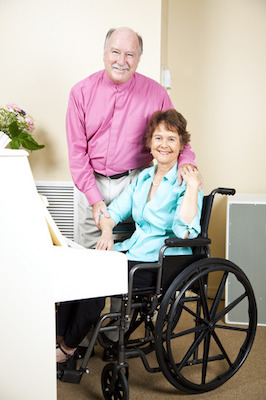There are two approaches to teaching piano. The first is the pedagogical model, where teaching is teacher directed. Teachers choose what to teach and what the student will learn in logical step-by-step format.
The second approach is student directed. A student sits down and chooses what they wish to learn and approaches every lesson based on their desires for what to play.
The second approach is often just what’s needed to keep adult learners engaged. After all, when an adult chooses to learn to play the piano, they have a pretty good idea of what they wish to play. Yes, they understand the need for some of the basics. But overall, they have a goal and a plan already in mind. They have their desires already laid out.
That’s also why in many cases adults over 50 are also easier to teach.
They have the most expendable income of any other age bracket – they choose to spend on what they most desire. That means a quality piano, the right accessories, and quality lessons.
They know what they want to learn. They may have a particular song in mind they want to learn.
They also have a better understanding of music. Even if they’ve never picked up an instrument before, they have years of experience in listening. They understand rhythm. They understand melody. And in many cases, it’s easy to “hear” that just by plucking a few notes on the piano.
When it makes sense, they become more interactive. They choose to play because they have the desire.
With older students, get them to play right away. Don’t introduce theory or basics in the beginning. Realize those will come over time. Instead, listen to what an adult student has to say. They set the stage for all that you can teach.
Also, don’t be too much of a stickler on proper finger arrangement. Adult students have a lot of experience in keyboarding. They’ve typed away at the computer for years. And in many cases, fingers will naturally fall into place, be comfortable to do what they need to do. You can adjust when difficulties arise in the future. But from the beginning, the most important thing is just to start playing.
What have you found helps your adult students to play?


